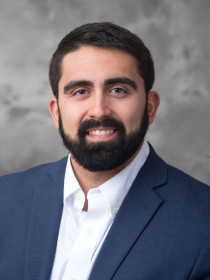
Fernando Tormos-Aponte
Connect with Fernando
About Fernando
Tormos-Aponte's research focuses on how social movements cope with internal divisions and gain political influence. He specializes in social movements, identity politics, social policy, and disasters. Tormos-Aponte is a Kendall Fellow at the Union of Concerned Scientists and a Visiting Scholar at Johns Hopkins University. He earned his MA and PhD in Political Science from Purdue University, West Lafayette, and a BA from the Universidad de Puerto Rico—Río Piedras.
Contributions
How Inequality and Politics Influence Government Responses to Natural Disasters
How Social Movements Build Power through Intersectionality
No Jargon Podcast
In the News
Publications
FInds that communities with ties to the ruling party elicit greater government responsiveness while socially vulnerable communities are less likely to be prioritized during the disaster relief efforts, controlling for disaster damage as well as logistical, economic, and essential service recovery priorities.
Advocates for a Green New Deal driven by grassroots organizing and democratic decision-making.
Argues that despite criticism of Second-Wave feminists for ignoring the intersection of race and gender, the movement, when viewed in conjunction with the African American Civil Rights Movement, proved influential for Black women who came of age during this period, launching a generation of female, African American state political leaders.
Focuses on the practical implications of intersectionality for social movements. Reviews prominent definitions of intersectionality, identifies a series of tenets, and presents a brief history of the notion of intersectionality. Reviews extant explanations of solidarity.